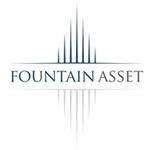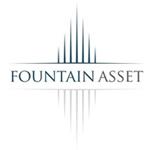While Ethereum, Solana, and XRP continue to benefit from these positive developments, ongoing geopolitical uncertainty and weakening global risk appetite continue to suppress prices. As a result, narrow-range price movements seen across the broader market are also reflected in these three altcoins.
Ethereum approached the $2,800 range last week, attempting to break out of the $2,430–$2,730 consolidation zone. However, with global market dynamics shifting rapidly, investor risk appetite remains low in the current environment of uncertainty. This is one of the key factors limiting upward momentum in the Ethereum market.
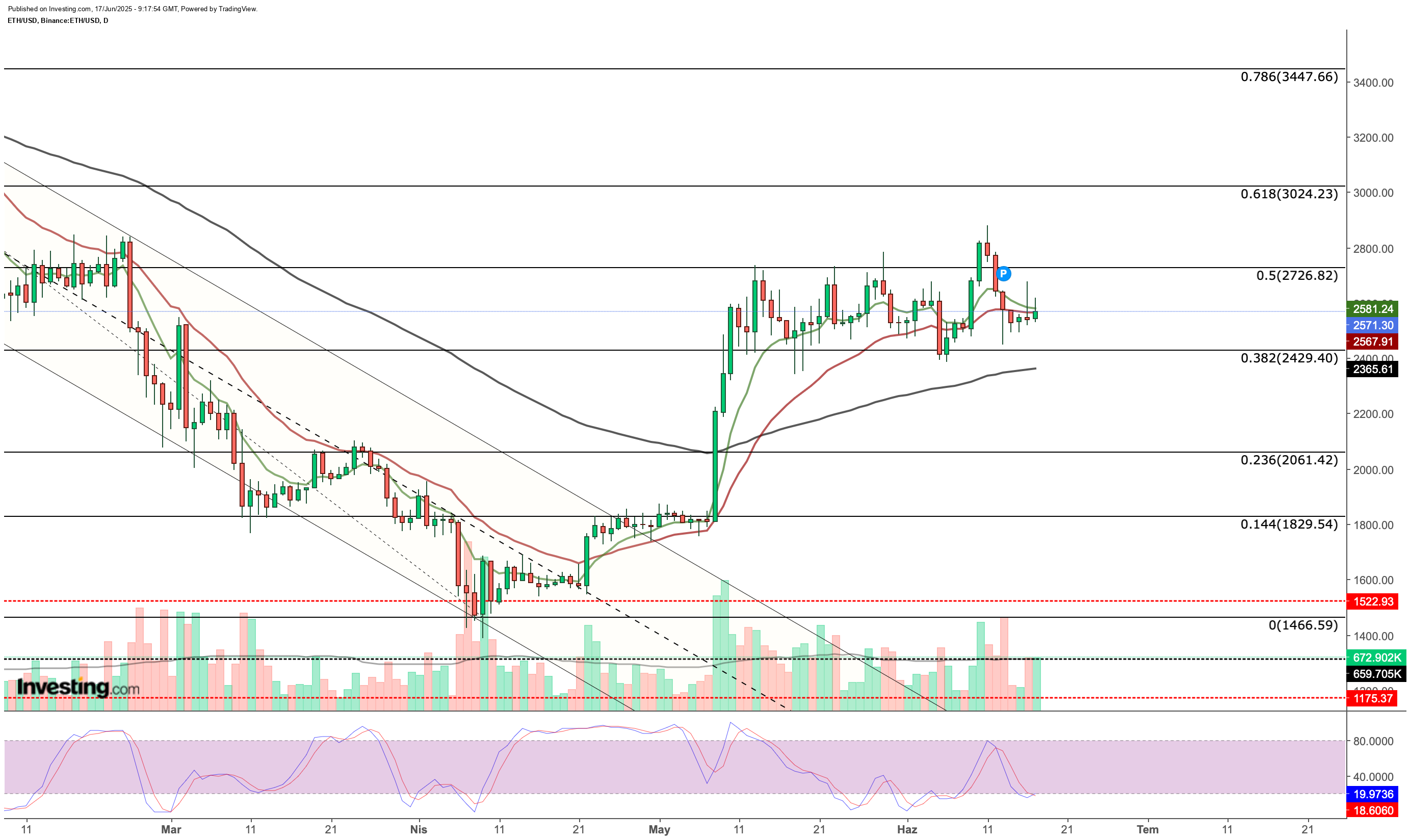 As a result, ETH saw profit-taking around $2,800 and dropped as low as $2,500. While the cryptocurrency has remained above $2,500 since the weekend, recent price action suggests that ETH’s support zone has shifted higher. However, since upside momentum has remained weak over the past month, a weekly close above $2,730 has become important for confirming a stronger uptrend. Although daily gains are being met with selling pressure, a sustained close above $2,730 could establish this level as new support and potentially mark the beginning of an upward trend.
As a result, ETH saw profit-taking around $2,800 and dropped as low as $2,500. While the cryptocurrency has remained above $2,500 since the weekend, recent price action suggests that ETH’s support zone has shifted higher. However, since upside momentum has remained weak over the past month, a weekly close above $2,730 has become important for confirming a stronger uptrend. Although daily gains are being met with selling pressure, a sustained close above $2,730 could establish this level as new support and potentially mark the beginning of an upward trend.
In the current setup, ETH’s closest resistance is around $2,580. If daily closes hold above this level, we could see a move toward the major resistance zone around $2,700. A bullish signal from the Stochastic RSI is also expected above $2,580, as seen last week. If Ethereum breaks out with a weekly close above the consolidation zone, the price may quickly target the $3,000–$3,400 range.
While the general upward trend in Ethereum remains intact despite its current flatness, levels down to $2,430 continue to form a critical support area. A pullback below this level could trigger a broader decline toward $2,000.
and the SEC have entered a new phase in their years-long legal battle. A joint request by both parties to suspend the appeals process suggests that the case could progress rapidly and leaves the door open to a potential settlement.
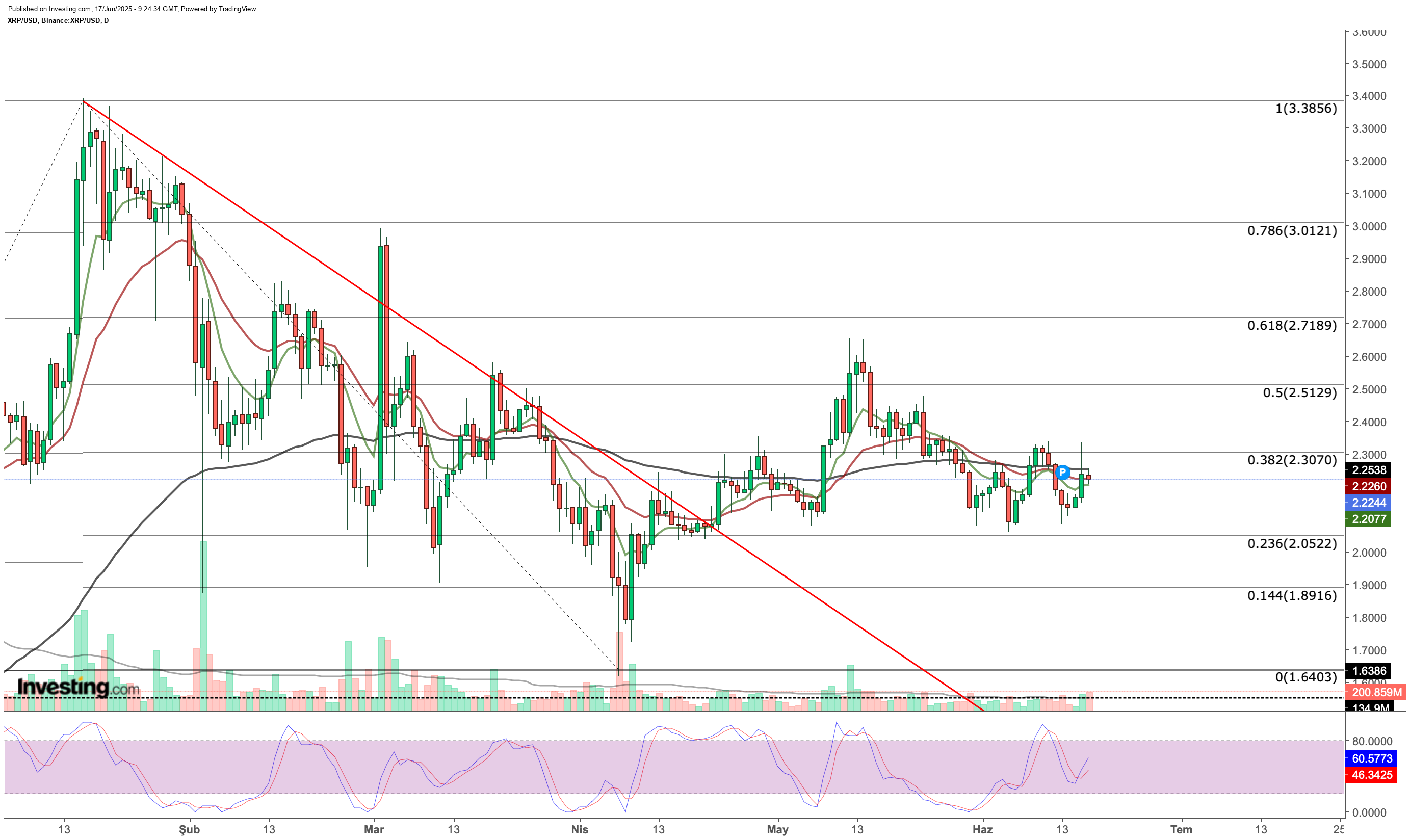 This development can be viewed as a positive sign for resolving legal uncertainty—not only for Ripple but also for U.S.-based crypto projects more broadly. A conclusion to the XRP case could significantly impact the trajectory of crypto regulations in the U.S., keeping expectations high across the altcoin market, especially for XRP.
This development can be viewed as a positive sign for resolving legal uncertainty—not only for Ripple but also for U.S.-based crypto projects more broadly. A conclusion to the XRP case could significantly impact the trajectory of crypto regulations in the U.S., keeping expectations high across the altcoin market, especially for XRP.
Resolving XRP’s legal hurdles could also drive an increase in institutional demand. In this context, XRP-based ETF efforts have recently gained momentum. Most notably, Canadian firm Purpose Investments announced it will list an XRP spot ETF on the Toronto Stock Exchange on June 18, offering both Canadian and U.S. dollar-based options—an important step for broader institutional acceptance.
As ETF developments continue to support XRP’s price, the token tested the $2.3 resistance level again yesterday, gaining 7% in value.
XRP, which pushed toward $2.65 last month, dropped to an average of $2.1 following a correction, forming an important support line at that level. Throughout June, price compression between $2.1–$2.3 has been observed, and this pattern could fuel new volatility in the coming days. Daily closes above $2.3 could create momentum toward the $2.5–$2.7 range. If demand continues to rise, the $3–$3.4 range may come into play.
On the downside, the $2–$2.1 range is the main support area for XRP. A move below this range could extend the downtrend that began at $2.65 in May and briefly paused in June. In a negative scenario, XRP could fall back toward the $1.65–$1.9 range.
After bouncing from the $100 zone in April, Solana staged a rapid recovery—rallying over 80% to reach $180. However, the cryptocurrency failed to break the $180 mark last month and declined to $142 during the correction.
Recent price action has made three levels critical for Solana. On the downside, $142 remains a key support. To the upside, $183 marks the upper limit of the consolidation band and serves as main resistance. The mid-point of this channel is around $165, which is now acting as intermediate resistance. SOL, which found support at $142 earlier this week, is currently testing $155—where short-term EMA values lie. Daily closes above this level could bring $165 into play, and if broken, $183 may be retested. A breakout beyond this range could open the path to $200, $230, and $260 as short- and medium-term targets.
If the $142 support fails, a drop toward $130 could follow. Should that level also break, Solana could retreat all the way back to the $100 region.
Among recent developments for Solana, ETF filings are particularly noteworthy. The cryptocurrency has reentered the radar of institutional investors thanks to spot ETF applications submitted to the SEC by Fidelity and CoinShares. Fidelity’s ETF proposal includes staking—a mechanism that would directly benefit Solana’s network economy.
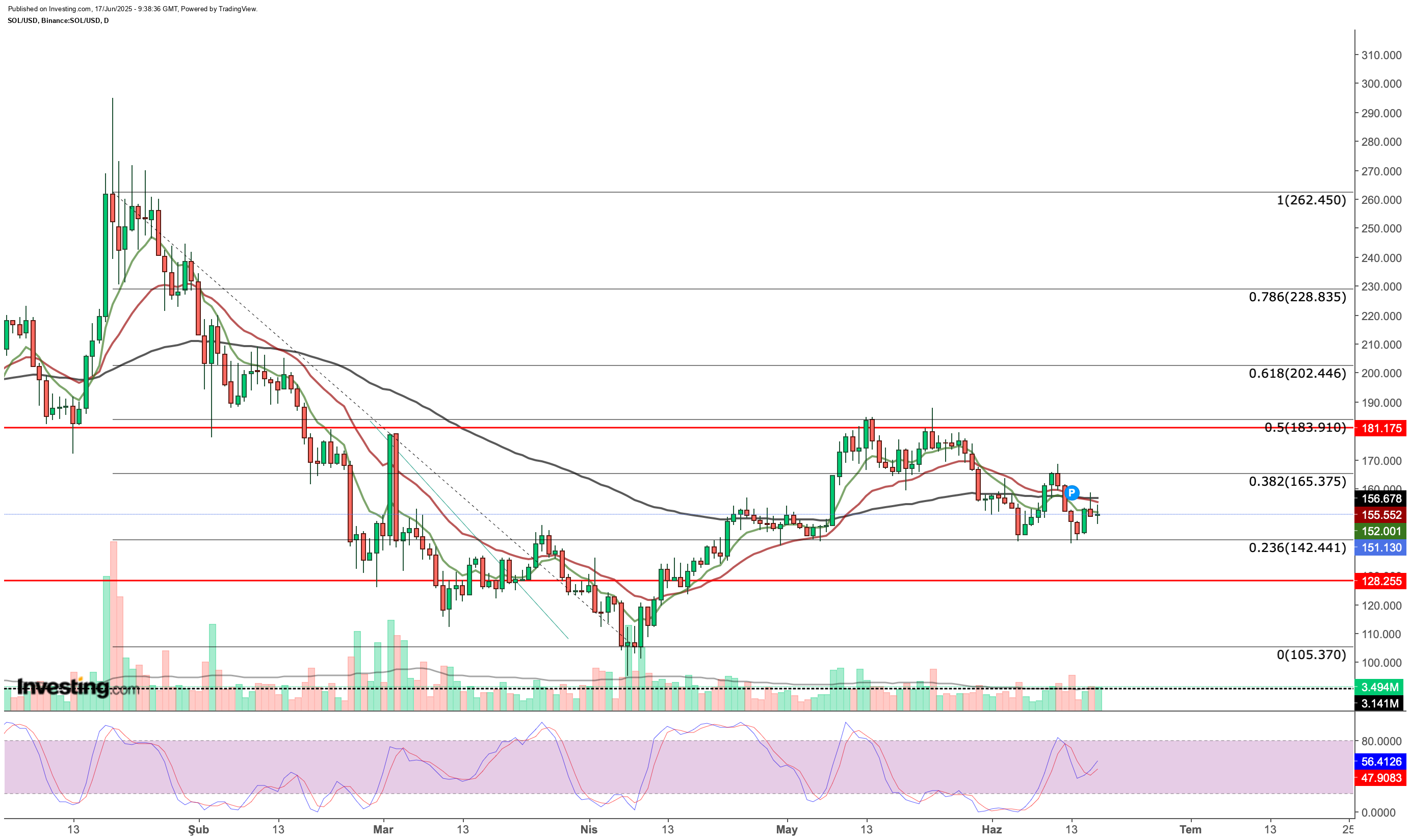 CoinShares’ application is more conservative, but the firm’s successful and Ethereum products suggest that Solana could follow a similar path. Bloomberg analysts estimate a 90% probability of ETF approval, raising short-term expectations for institutional capital inflows. However, the SEC has the final say, and the market impact of these applications remains limited for now.
CoinShares’ application is more conservative, but the firm’s successful and Ethereum products suggest that Solana could follow a similar path. Bloomberg analysts estimate a 90% probability of ETF approval, raising short-term expectations for institutional capital inflows. However, the SEC has the final say, and the market impact of these applications remains limited for now.
***
If you’ve been on the hunt for professional-grade investing tools to take your investment strategy to the next level, here’s your chance.
For a very limited time only, you can get full access to InvestingPro – our all-in-one investing platform – for just under $7 a month using this link.
That means immediate access to insightful tools like:


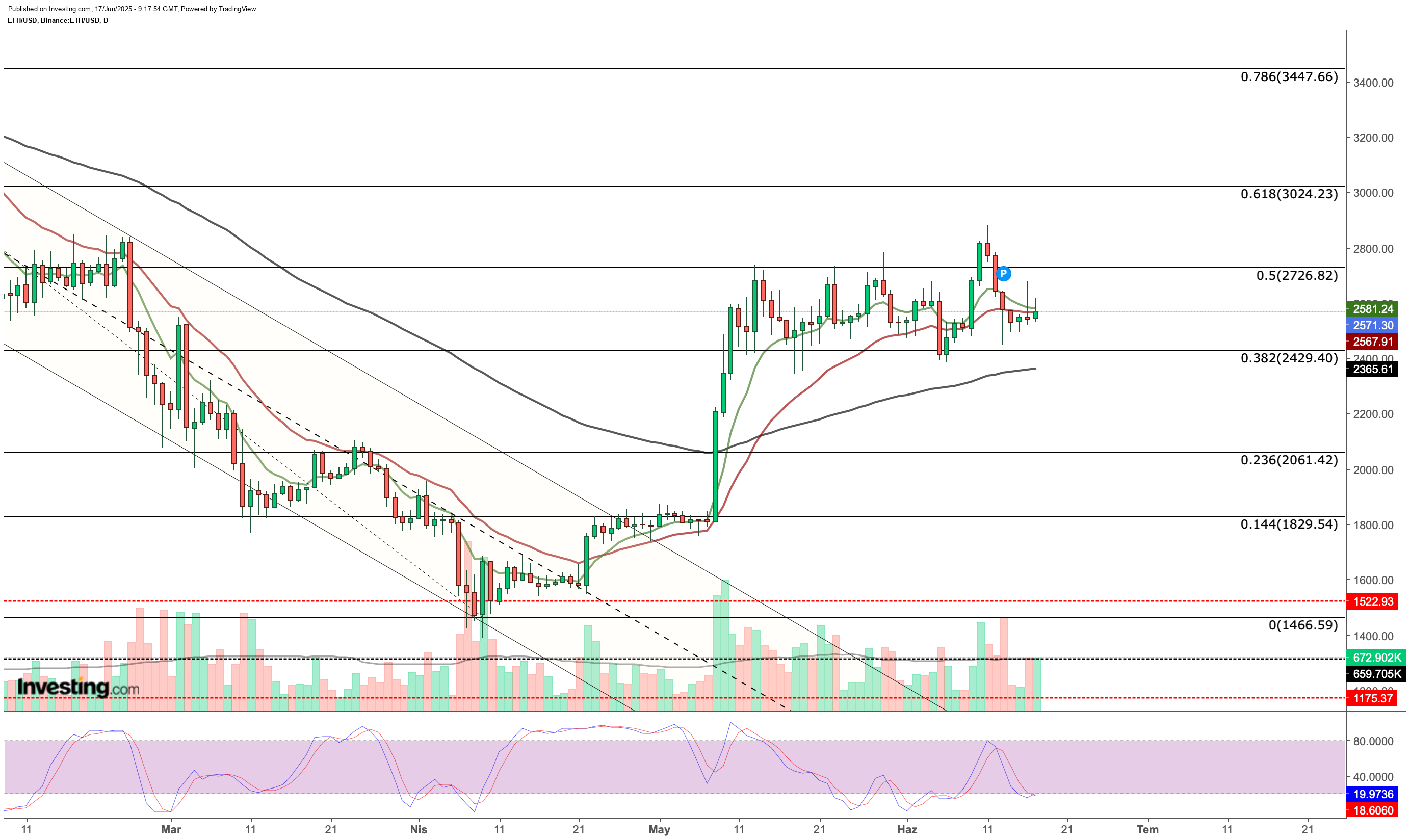
 As a result, ETH saw profit-taking around $2,800 and dropped as low as $2,500. While the cryptocurrency has remained above $2,500 since the weekend, recent price action suggests that ETH’s support zone has shifted higher. However, since upside momentum has remained weak over the past month, a weekly close above $2,730 has become important for confirming a stronger uptrend. Although daily gains are being met with selling pressure, a sustained close above $2,730 could establish this level as new support and potentially mark the beginning of an upward trend.
As a result, ETH saw profit-taking around $2,800 and dropped as low as $2,500. While the cryptocurrency has remained above $2,500 since the weekend, recent price action suggests that ETH’s support zone has shifted higher. However, since upside momentum has remained weak over the past month, a weekly close above $2,730 has become important for confirming a stronger uptrend. Although daily gains are being met with selling pressure, a sustained close above $2,730 could establish this level as new support and potentially mark the beginning of an upward trend. This development can be viewed as a positive sign for resolving legal uncertainty—not only for Ripple but also for U.S.-based crypto projects more broadly. A conclusion to the XRP case could significantly impact the trajectory of crypto regulations in the U.S., keeping expectations high across the altcoin market, especially for XRP.
This development can be viewed as a positive sign for resolving legal uncertainty—not only for Ripple but also for U.S.-based crypto projects more broadly. A conclusion to the XRP case could significantly impact the trajectory of crypto regulations in the U.S., keeping expectations high across the altcoin market, especially for XRP. CoinShares’ application is more conservative, but the firm’s successful
CoinShares’ application is more conservative, but the firm’s successful 